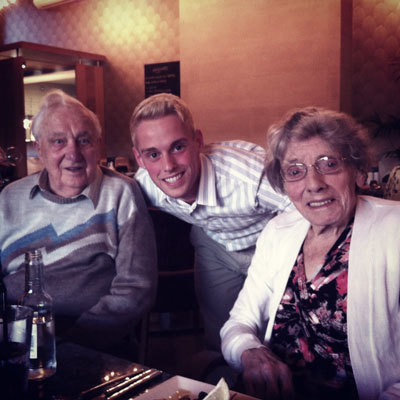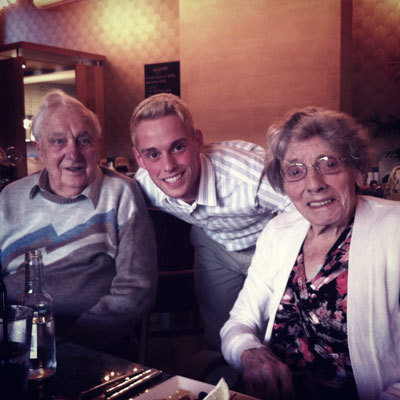
More gay, bisexual and queer men will be able to donate blood in England and Wales, in a major equality win for the LGBTQ+ community.
Between 2017 and now, men who have sex with men (MSM) could not donate blood without abstaining from oral and anal sex for three months, regardless of whether or not it was in a long-term monogamous relationship.
The rule change, which came into force on World Blood Donor (June 14), means NHS Blood and Transplant will now judge the sexual behaviour of all prospective donors equally and based on risk, rather than gender or sexuality.
Campaign Group Freedom to Donate founder Ethan Spibey said: “It’s genuinely incredible, this is something we’ve been working on for years. This is a fundamental rethinking of how people are assessed on the basis of their individual eligibility.”
Now anyone who has had new or multiple partners in the last three months – excluding oral sex – or who is otherwise high-risk for blood-related disease will be deferred.
Freedom to Donate has fought hard for these changes for over six years, and contributed towards a FAIR (For the Assessment of Individualised Risk) government steering group report, which recommended them.
“That is something that has directly come from a call from the campaign, so to have that as the government policy is massive,” said Spibey.
“There aren’t many wins when it comes to being LGBTQ quite often, but this genuinely feels like a positive step forward for a more inclusive and fairer donation system.”
Spibey, 29, donated blood for the first time in his life on the same day as the rule change, which arrives during Pride Month.
He started campaigning for the change as a university student, following his grandfather Ken’s life-saving operation.
Spibey said: “My grandfather needed about eight pints of blood and my parents’ family hadn’t really donated blood up until that point. Grandad only survived this operation because of those donors, so it was almost a family pact that we’re going to repay that donor.

“I remember my dad came home with the papers and I looked down the page at this question: ‘have you had sex with a man in the last twelve months?’ and obviously I was essentially excluded from donating blood.
“The double hit at the time was I wasn’t out to my parents so not only did I have to lie about not wanting to donate blood but I couldn’t be honest as to the reasons of why I couldn’t.
“I felt awful because we’d wanted to do something positive and it was one of those moments where you realise as a gay man, there are still things in place that make you feel like you’re not ‘normal’.
“There’s always this question of stigma around HIV, which obviously affects people’s access to health and sexual health services. It’s fair to say, historically, that there was clear prejudice there against people living with or impacted by HIV.”
According to Public Health England data, the proportion of people accessing HIV care, who acquired HIV from sex between men in 2019 was 46.4%, virtually the same as the proportion of people accessing care who acquired HIV through heterosexual sex, at 46.1%.
But although HIV no longer disproportionately affects MSM, MSM and women who had sex with MSM, still faced discriminatory questions about their sex lives in blood donation risk assessment questionnaires.
“It was certainly stigmatising as if we were the only sect of the population that was risky in their sexual promiscuity. We couldn’t be treated as trustworthy to stop others from getting it,” said 27-year-old David Huish.
Huish has not yet attempted to donate blood after his first and final attempt, around seven years ago, put him off.
He said: “I tried to give blood once and I wasn’t aware of the rules and it was really embarrassing because I was there with my mum. She got up to donate and I then sat down and that was kind of when she knew that I might be sexually active because she was like ‘oh I didn’t see you do it’ and I was like ‘yeah the criteria weren’t matching me’. It was meant to be such an altruistic nice thing to do and it was really demonising at the same time.
“Being a blood drive at the time it was like well ‘I’ve got blood, I know I’m safe’, we get free HIV NHS checks, which gay people, I think probably take more because there is more association of that. A lot of my straight friends, for example, don’t get a sexual health check more than once every year or so, whereas I like to do it once every three months just to make sure.
“I’ve never actually given blood and I would like to, so I feel that it’ll be a really nice thing to do.”
Campaigns director at HIV and sexual health charity Terence Higgins Trust, which was also part of the government’s FAIR steering group, Richard Angell, said: “The changes are really important, because for MSM and women who have sex with MSM, it will put behind them an institutionalised stigma that had a real impact on the LGBTQ community and crucially has been based for too long on fear rather than science.
“We have taken down a big boulder in the fight against discrimination and that lazy application of science in the process.”
But despite this victory, Terence Higgins Trust has pledged to continue the fight against rules which defer people with a sexual partner in what the NHS calls “parts of the world where HIV/Aids is very common” and “most countries in Africa,” which Angell claimed is vague and discriminates against Black potential donors.
The rule-change is a far-cry from public health policy at the height of the 1980 AIDS crisis, when a lifelong blood donation ban for MSM was enforced until 2011. It was then replaced by a one-year ban in England, Scotland and Wales.
37-year-old Angell still remembers being rejected from donating blood in 2001 as a teenager, unaware of the ban.
“I remember being, I think, 17 and going to give blood with my old scout hut. I went with a group of friends from school to give blood. In my head I thought it was sort of the equivalent of doing jury service, a good honourable citizenship thing to do. I was young and healthy and wanting to do my bit,” said Angell.
“I sat down in front of the nurse and she says ‘just checked through and if any of these apply you can’t give blood’. It might as well have been highlighted and had flashing lights on it because I saw it said: ‘if you’d had sex with a man ever’. She thankfully, for some reason, got up and left the cubicle and I literally had to sneak out the back.
“I just disappeared and my friends were like: ‘where had you gone?’ I said I had to go home straight away after giving blood. It was pretty bloody awful. It wasn’t my first interaction with homophobia but there was a sense of ‘oh my god, everywhere I turn there is going to be something making this harder’.
“I wasn’t out to my friends at school, that was not an easy conversation and also I didn’t want the health service deciding that I had to have that conversation.
“To have come full circle and it to be a purely scientific and precise set of rules, means that everyone can be confident in the blood supply there won’t be any discrimination in the process.”
A Department of Health and Social Care spokesperson said: “We are committed to making blood donation policy fairer and more inclusive, and the changes to the blood donor selection criteria that will be implemented on 14 June are a step towards this.
“We encourage everyone who is eligible to give blood to register to donate.”